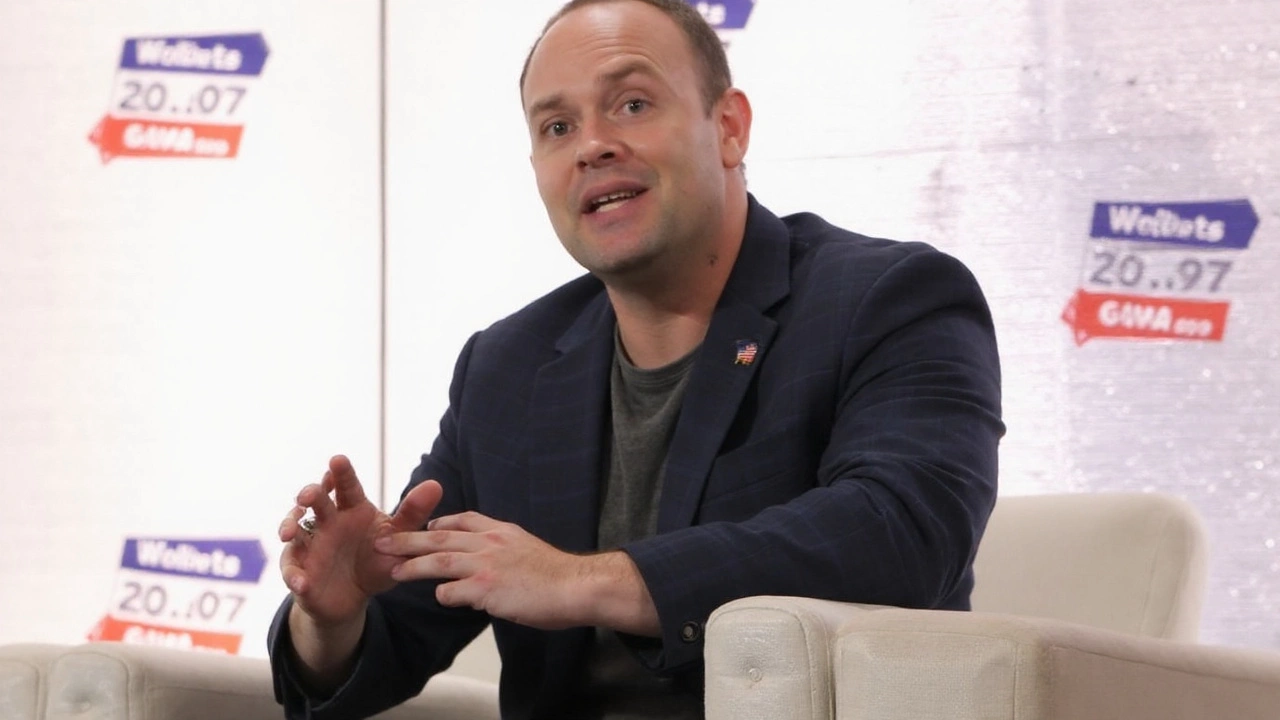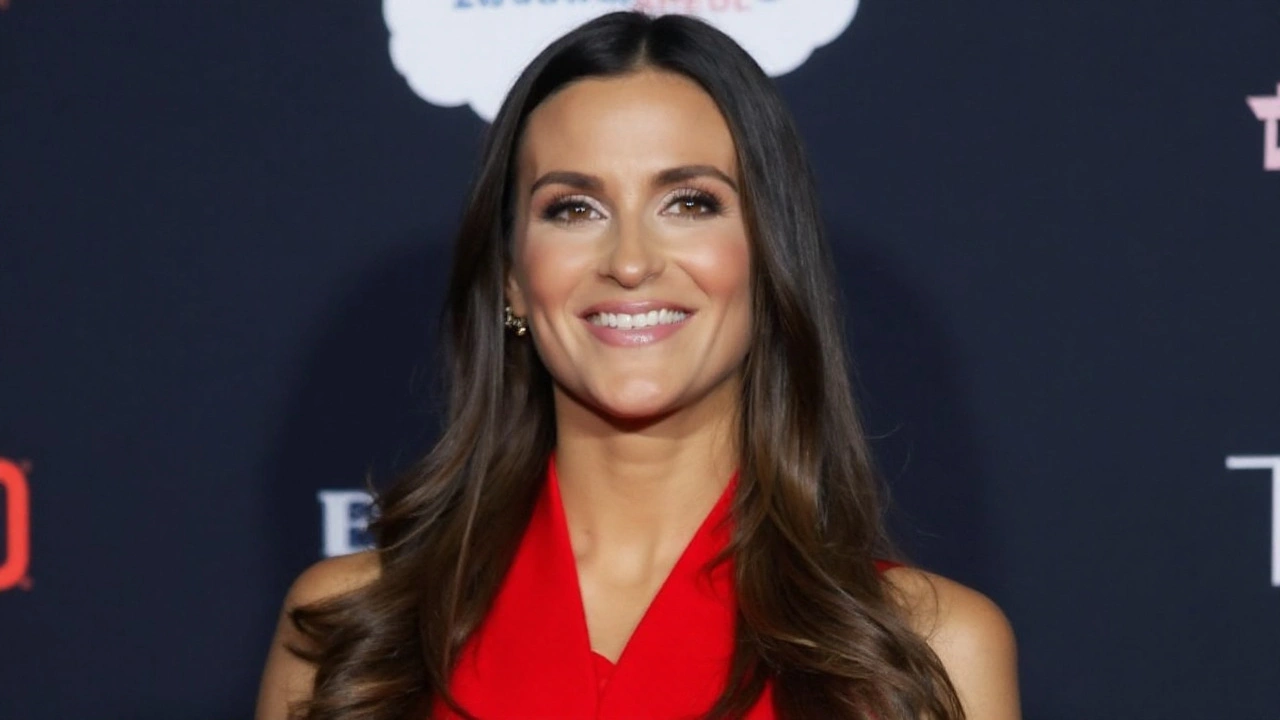A president saying he “hadn’t thought about” who halted munitions to a country fighting a war is the moment that stuck with viewers Wednesday night. On MSNBC’s The Last Word, Lawrence O'Donnell took direct aim at Donald Trump’s responses to basic questions about a pause in U.S. military support to Ukraine—calling the answers incoherent and emblematic of a long pattern.
The exchange that set off the critique
The immediate trigger was a pair of press questions that should have been straightforward. On Tuesday, July 8, CNN’s Kaitlan Collins asked Trump who ordered the pause on sending munitions to Ukraine. Trump shrugged it off: “I don’t know. Why don’t you tell me?”
A day later, New York Times White House reporter Shawn McCreesh circled back: had the president figured out who gave the order? Trump replied, “Well, I haven’t thought about it.” Pressed again—what does it say if a consequential decision could be made without his knowledge?—Trump shifted gears: “I would know. If a decision was made, I will know… I’d be the first to know. In fact, most likely, I’d give the order.”
That sequence—professing ignorance, admitting he hadn’t considered it, then asserting he’d be the first to know and maybe the decider—gave O’Donnell all the material he needed. On air, he argued the statements didn’t add up and pointed to what he called a “shred of truth” in the “hadn’t thought about it” line. To O’Donnell, it captured a recurring theme: when faced with specific accountability questions, Trump oscillates between distancing himself and asserting authority, often in the same breath.
Collins’s pointed question also sits inside a larger, years-long clash between Trump and CNN. He’s used rallies, interviews, and the briefing room to dismiss the network’s reporting, refuse questions, and deride ratings. In 2018, the White House blocked Collins from a Rose Garden event after she pressed Trump in the Oval Office—an episode that drew pushback from news organizations across the spectrum and underscored the adversarial relationship.
O’Donnell, for his part, has taken a broader view. He’s repeatedly criticized how live coverage handles presidential claims in real time. His argument: networks should fact-check on the spot rather than let misleading answers pass and clean them up later. Wednesday’s monologue blended that long-running media critique with the specifics of the Ukraine aid pause, which he framed as a test of how press and power interact when the stakes are international and immediate.

Why the Ukraine-aid pause — and the answers — matter
Pausing munitions to Ukraine isn’t a small procedural tweak; it touches battlefield realities and alliance politics. Since 2014, Ukraine has fought Russian-backed forces in the east, a conflict that exploded into wider war in 2022. U.S. support has included anti-armor systems, ammunition, training, and intelligence cooperation—aid that Ukrainian commanders say can determine whether units hold or break under pressure.
Inside a White House, decisions to delay or greenlight such shipments typically move through formal channels. The Pentagon identifies needs, State weighs end-use and diplomacy, and the National Security Council coordinates. The Office of Management and Budget often vets the money. That process creates a paper trail—directives, emails, sign-offs—because the law requires it. The Impoundment Control Act was written to stop the executive branch from quietly holding up funds Congress already approved.
That’s not an abstract reminder. In January 2020, the Government Accountability Office found the White House budget office violated that law when it withheld congressionally approved Ukraine security assistance in 2019. The GAO’s conclusion was technical but blunt: policy disagreements don’t let the executive branch freeze spending that Congress directed. That earlier dispute fed a broader political firestorm and an impeachment inquiry. It also taught Washington something practical: if aid is being paused, someone authorized it, and there are records.
That’s why Trump’s answers this week landed the way they did. Either a pause happened—and then the question is by whom and why—or it didn’t, which should be easy to clarify. Saying “I don’t know,” upgrading to “I haven’t thought about it,” and then asserting he’d know or even be the one to order it, left both possibilities dangling. For critics like O’Donnell, it sounded like trying out multiple narratives in real time.
The press questions also go beyond political theater. They test whether the White House will provide a clear chain of command on high-stakes national security decisions. Even when presidents delegate, they typically insist they were briefed, or they explain that a routine, preexisting policy triggered the move. When that clarity is missing, foreign ministries and defense chiefs in allied capitals notice. Ambiguity can slow logistics, complicate planning, and spook partners who depend on predictable U.S. timelines.
There’s a domestic governance angle too. Congress funds the assistance and has its own oversight duties. If the executive branch pauses munitions, legislators expect a rationale—logistical bottlenecks, end-use concerns, training gaps, or a deliberate policy reset. Without that explanation, committees start asking for documents, inspectors general get calls, and deadlines for spending appropriations loom. The mechanics may be boring, but they’re the guardrails that keep foreign policy from being a black box.
Trump’s back-and-forth with Collins and McCreesh fits a familiar pattern in his media dealings. He often seeks to recast the premise of a question, question the questioner, or blur timelines. Supporters see that as refusing to play by what they view as hostile media rules. Reporters see it as evasion. Either way, it puts a premium on follow-ups—the kind both reporters used here—which force the White House to settle on facts or be seen dodging them.
MSNBC and CNN, rivals in the cable news ecosystem, approach these moments differently on air. MSNBC leans into analysis-heavy segments like O’Donnell’s, threading clips with scrutiny and context. CNN tends to keep reporters in the back-and-forth, pressing for on-the-record details. The split can frustrate viewers looking for either straight answers or immediate accountability. But it also creates a feedback loop that pushes officials to tighten their explanations. When one answer doesn’t stick, the next day’s question is sharper.
So what would satisfy the basic inquiry that started this? Three things: a timeline, the authorizing official, and the stated reason. Timelines show when a pause began and ended. Naming the authorizer tells you whether this was a presidential directive, an agency-level action, or a routine hold. Reasons can range from logistics to diplomacy. Those details are normal in national security communications; they reassure allies the process is disciplined, even when choices are controversial.
Absent that, the rhetorical gap becomes the story. O’Donnell’s critique landed not just because it was scathing, but because it highlighted the contradiction: if the president “would know” and “most likely” would be the one to order a pause, then either he knows or the pause didn’t happen. If he doesn’t know, who’s running the policy? If he does, why not say so and defend the decision?
Trump’s tense history with Collins added heat to the exchange. She has been one of the most persistent questioners in White House press scrums, which has brought her both pushback and praise. For the administration, her questions often become viral clips—fuel for supporters who see media hostility, and fodder for critics who see stonewalling. O’Donnell, a veteran of both politics and television, understands that dynamic and uses it—quoting the words, playing the tape, and letting the contradictions sit.
The impact reaches Kyiv and beyond. Ukrainian officials plan their battlefield tempo around promised deliveries from the United States and Europe. A pause—even a short one—can force commanders to ration artillery, delay operations, or reshuffle units. Russia watches those signals too, probing when they sense supply gaps. That’s why allies ask for clarity not only on what’s coming, but when.
The White House, as of midweek, had not provided a detailed breakdown of the pause or publicly named the official who approved it. That leaves open questions that will keep reporters pressing: Was this a legal, documented hold? Was Congress notified? Did the Pentagon recommend it? And is there a defined end date? Those are answerable questions that usually have paperwork behind them.
In the end, O’Donnell’s segment wasn’t just about a TV sound bite. It was about whether the administration is prepared to account for a consequential decision with the specificity the law, allies, and the public expect. If the answer is yes, the records exist and can be described. If the answer is no, the confusion will keep dominating the story, one briefing room exchange at a time.
